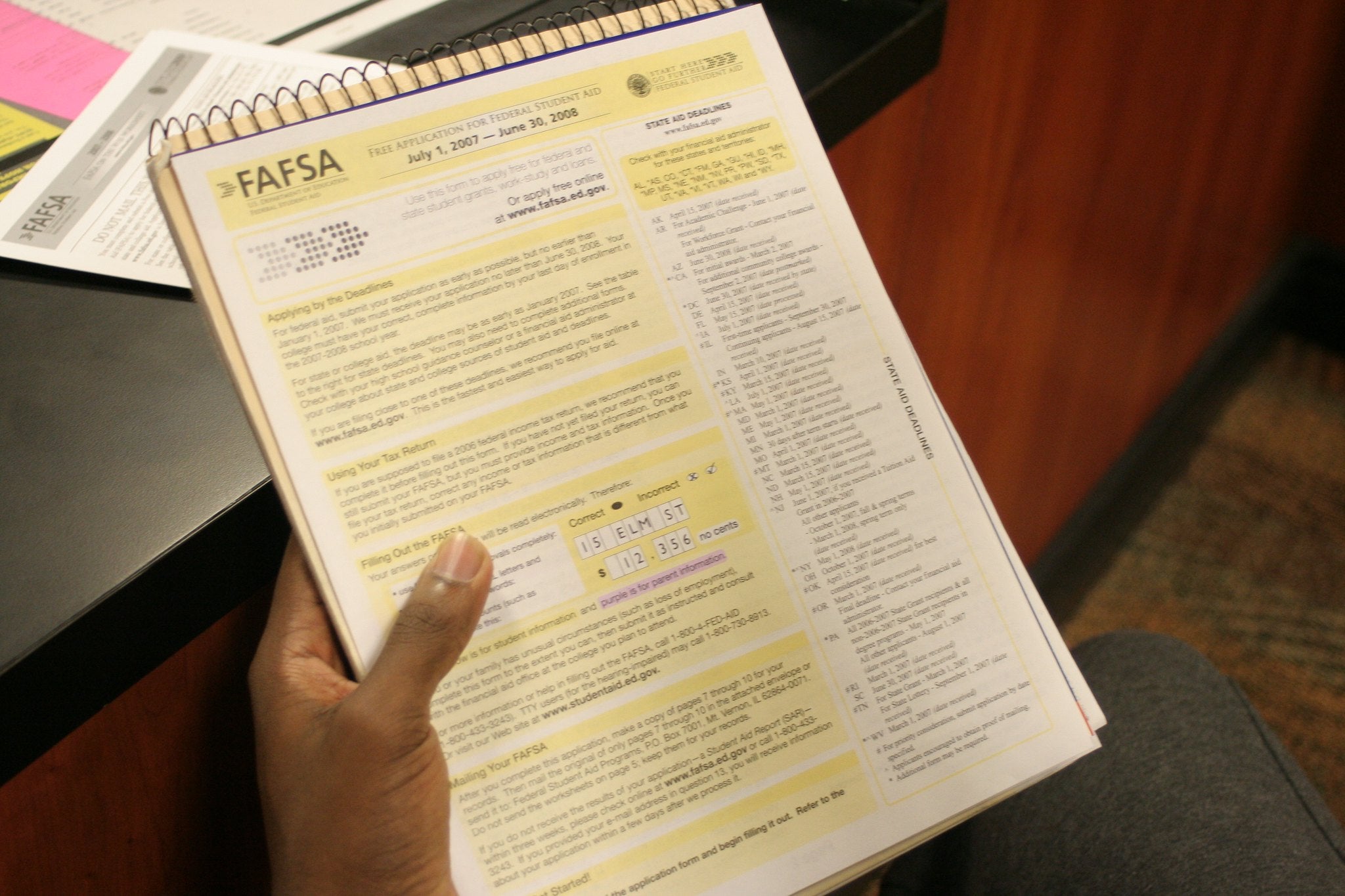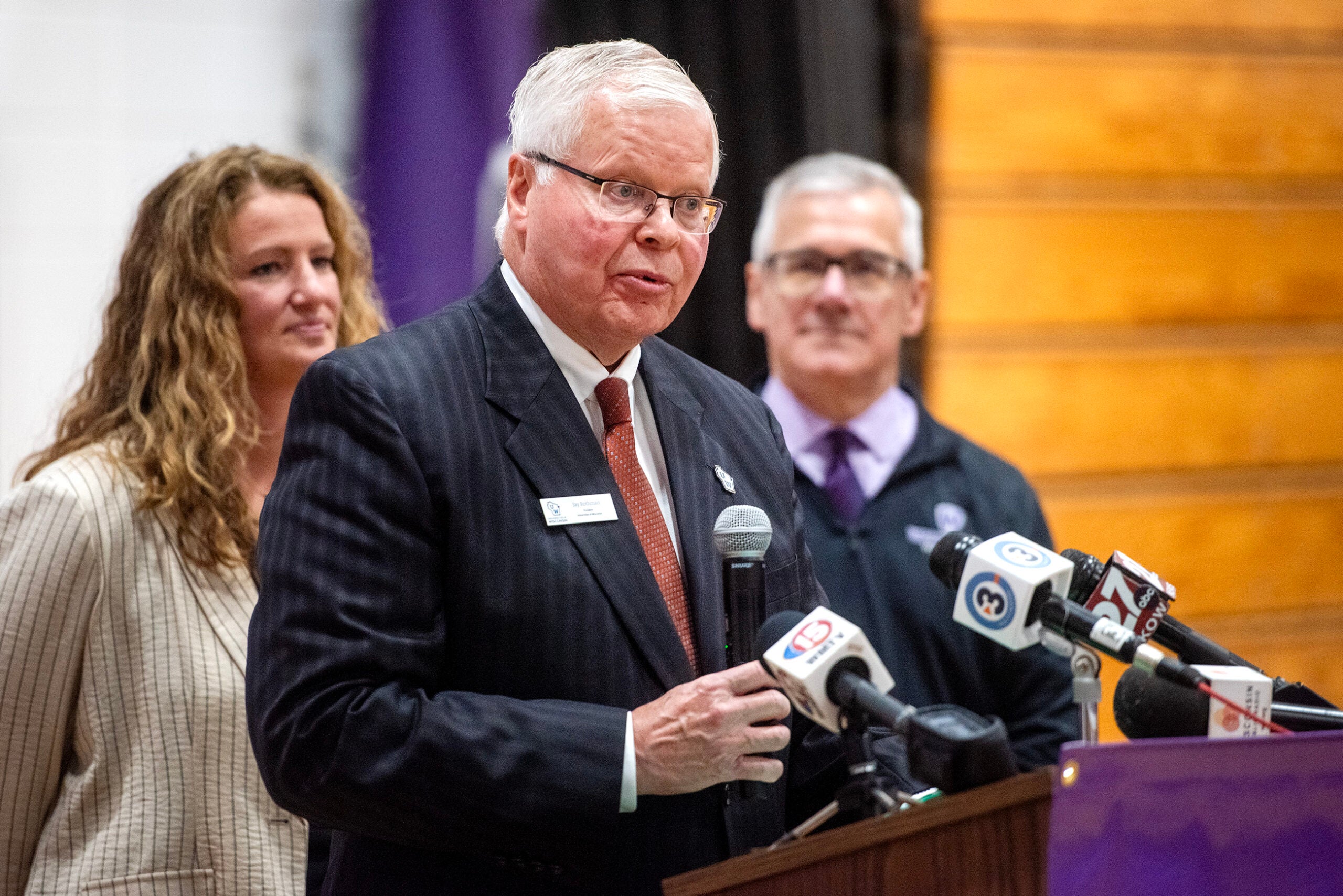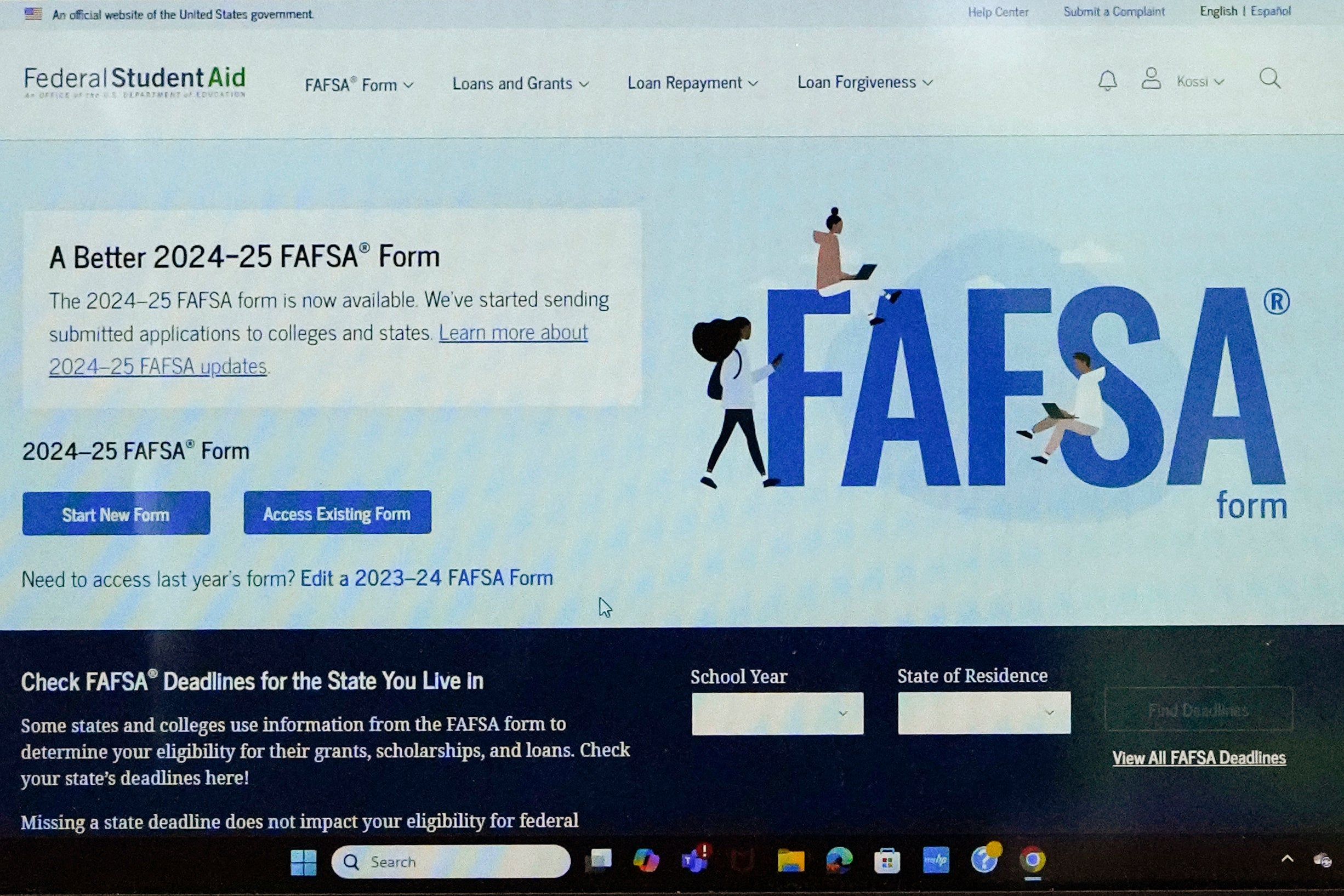Challenging, frustrating, confusing and unanticipated — that’s how financial aid officers and enrollment directors at colleges across the state are describing the wait for federal financial aid data.
Wisconsin colleges and universities are waiting on information from the U.S. Department of Education’s Free Application for Federal Student Aid, or FAFSA.
The form, filled out by about 17 million students each year, determines how much financial aid a student is eligible for. It affects scholarships, grants, student loans and work-study opportunities.
News with a little more humanity
WPR’s “Wisconsin Today” newsletter keeps you connected to the state you love without feeling overwhelmed. No paywall. No agenda. No corporate filter.
The application was revised this year and came out months behind schedule with miscalculations and technical problems that are still being corrected. Schools have been told they won’t receive the first batch of financial information until mid-March, delaying the release of financial aid packages to students.
Jordan Milan, University of Wisconsin-Superior associate vice chancellor of enrollment and marketing, said 86 percent of the school’s students receive some form of financial aid. She said students and staff are “really in limbo” as they wait to distribute need-based scholarships.
“Such a big piece of that decision-making process is the finances and making sure that finances line up. And right now, that piece of the puzzle is missing,” Milan said.
The FAFSA was redesigned with the aim of expanding assistance access and streamlining the application. Financial aid officers at universities in Wisconsin say students are finding the form more user-friendly once they can access it.
According to the U.S. Department of Education, the new application could make 610,000 more students from low-income backgrounds eligible to receive Federal Pell Grants.
‘Hurry up and wait’
Many administrators are most concerned about prospective students who are feeling uneasy as they wait.
UW-Madison pushed its decision date from May 1 to May 15 to give families more time to weigh financial offers.
Helen Faith, director of the office of student financial aid at UW-Madison, said the “new and major” change to the application had a big impact on students.
“Of course, they’re very anxious. They really want to know whether they can afford to come here,” Faith said.
Nikki Andrews, executive director of enrollment management at University of Wisconsin Eau Claire, said the FAFSA is a “whole new world” for prospective students and families. The delay is creating even more of a challenge.
“To ask them to make this big life decision without full information on the financial impact — we worry about the stress on our families,” Andrews said.
Schools are awarding merit-based scholarships in the meantime to give students some answers.
Schools worry delays could deter students from attending college
Jen Jones is the assistant vice chancellor for enrollment services at UW-Green Bay where she has worked for nearly 25 years. She worries some students may just give up.
“Some people are going to say, ‘That’s the last straw. I can’t move forward,’” Jones said.
Susan Teerink, associate vice provost for financial aid and enrollment service at Marquette University, said FAFSA filings are down.
“Students may give up on trying to get the FAFSA completed. And if that’s the case, it may delay their enrollment,” Teerink said.
Experts said the key to keeping students engaged is constant communication. Many schools are hosting events on campus or in local high schools and organizing meetings between prospective students and financial aid counselors.
Ericca Pollack, college access coordinator for Milwaukee Public Schools, said as of Feb. 2, almost 700 students in the district completed the FAFSA. She said the district will help families every step of the way.
“We’re going to continue to provide day-to-day support for our students and families on the delayed timeline. This will likely go into the summer,” Pollack said.
New form is better in the long run
Currently, contributors without a social security number cannot complete the form. The U.S. Department of Education announced today the problem will be resolved by mid-March.
Kristina Klemens with UW-Parkside said students with immigrant parents lacking permanent legal status may be forced to wait longer to complete the form, which may take students out of the running for some scholarships.
“That really harms the student and may make coming to school impossible for them because they wouldn’t have the financial aid available,” Klemens said.
Teerink with Marquette University said there is a misconception that come March, everything will unfold quickly. But schools will have to sift through applications and policies before making an offer.
“It’s not going to be something that magically happens,” Teerink said.
Students who have to go back and make corrections won’t be able to do so until March, further delaying the process.
Despite the roadblocks and months of delays, many students said the form is now much faster to fill out. Financial aid directors have seen some students complete the process in 15 minutes.
Many experts said they are optimistic this change will be helpful in the long run. Jones with UW- Green Bay the delay may serve as a life lesson for students.
“We (have) got to be patient sometimes and we don’t get the answer right away. And that’s part of developing and adulting,” Jones said.
Wisconsin Public Radio, © Copyright 2025, Board of Regents of the University of Wisconsin System and Wisconsin Educational Communications Board.






